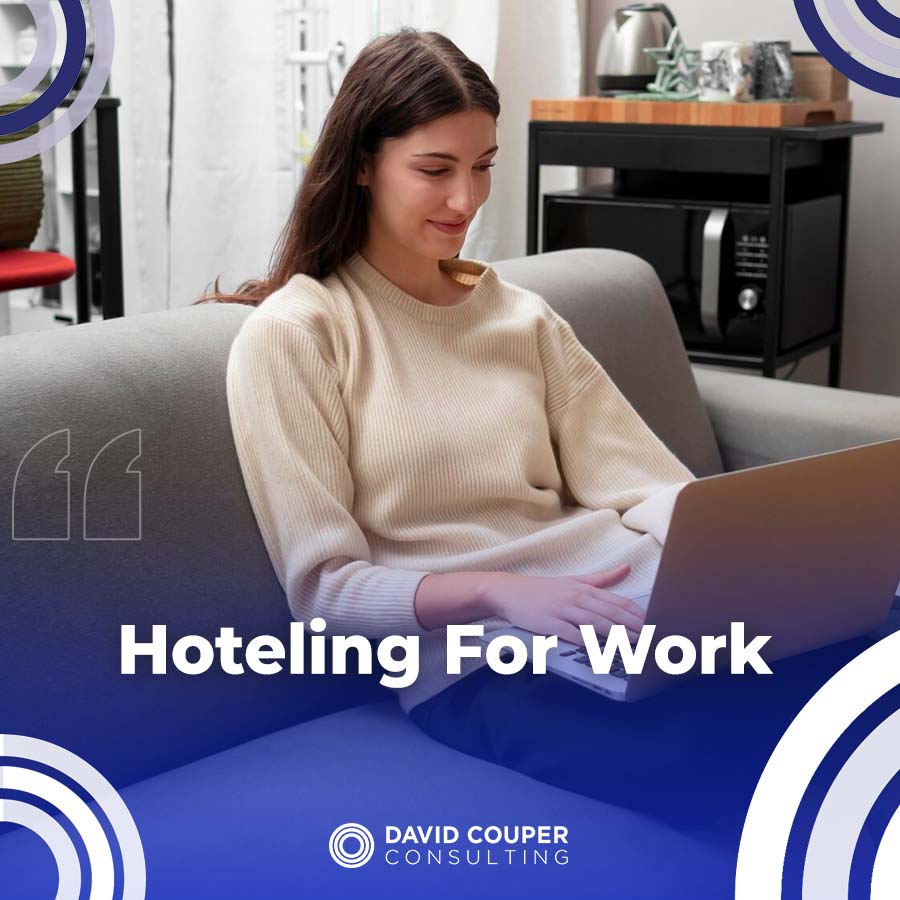
The workplace has forever been changed by the Covid-19 pandemic– working remotely or hybrid, less time in the office. A leaning towards a 4-day work week and a greater focus on skills and technology. These reasons are making Hoteling a reality for some offices. It can be a good option for certain types of workplaces, as it allows for more flexibility and can make more efficient use of office space.
If the term is new to you, think of hoteling as turning your office into a hotel. No permanent desks and no assigned seats. You make a reservation before you come to work, and you get assigned your own space on the floor to do your thing.
This trend can help out a lot of offices:
✔️ Less Cost. Reducing the number of permanent, dedicated workspaces can lead to cost savings for the organization. Since there are fewer seats, the company can opt for a smaller office and reduce cost and even carbon footprint.
✔️ More Flexible. Employees can reserve workspaces on an as-needed basis. This means the office can prepare for your needs ahead of time and not have equipment wasted if no one is using them.
✔️A social change. Since there are no more permanent seats, there will also be no permanent officemates. This could lead to better interaction and collaboration between different departments and teams.
Like any other trend, there will always be a negative effect that it can carry on in the office:
🔴 Losing that sense of office interaction. Without a dedicated workspace, employees may feel less connected to the organization and their colleagues. The traditional office has made a lot of friendships this way. Sitting near a person from 9 to 5 tends to help create social groups and friendships.
🔴 Privacy can be an issue. With employees working in different spaces, it can be more difficult to maintain privacy and keep sensitive information secure.
🔴 The need for better technology. Without a dedicated workspace, employees may have to spend time setting up and breaking down their workspaces, which can lead to reduced productivity. Offices must ensure portable devices, like laptops and phones, or dynamic user profiles so employees can use and set up on any office computer.
If a traditional workplace wants to adopt hoteling, it will require a change in mindset and culture. It’s important that management communicates the benefits and any potential drawbacks of hoteling to the employees and provide them with proper training and tools to make the transition smooth. Hoteling requires an effective reservation system and clear communication channels to be put in place to ensure the optimal use of spaces; it’s also important to have dedicated spaces to be used as quiet rooms or private rooms for employees. Management has to monitor and measure the impact of hoteling on employee productivity, satisfaction, and well-being and make adjustments as necessary.
DCC and our Cultural Transformation programs have always advocated for the advancement and improvement of the workplace culture. There is no escaping change. And the only way through it is to manage our reaction to changes in the office. It’s time to let you know how Cultural Transformation can work for you. Please email us at info@davidcouperconsulting.com.
